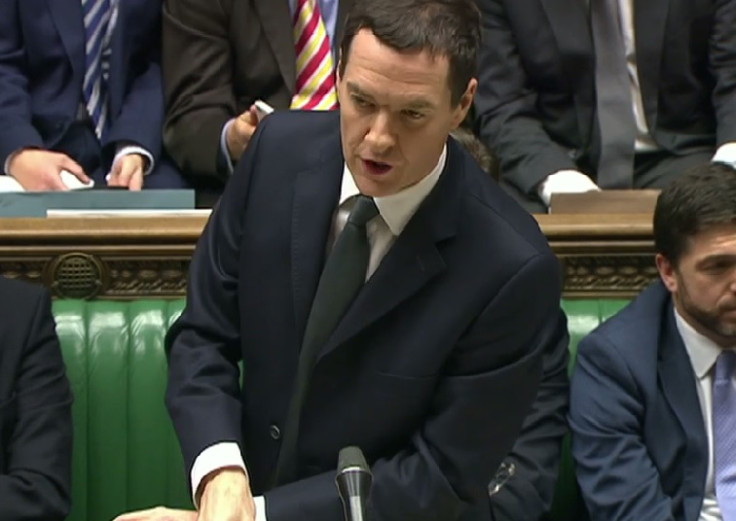Autumn Statement 2014: Osborne 'torpedoing' Universal Credit by freezing work allowances

George Osborne has been accused of putting the government's flagship Universal Credit welfare scheme in "very real danger" by announcing a freeze on work allowances.
The chancellor said during his Autumn Statement the government plans "substantial" saving from public spending by freezing Universal Credit work allowances for another year, cutting tax credits when over payments are certain and stopping unemployment benefits for migrants with "no prospect of work".
Osborne believes the savings would allow the government to invest £350m in increasing the support on offer for childcare costs under the new benefits system from 70% to 85% from April 2016.
Announcing the decision during his delivery speech of the Autumn Statement, Osborne said: "Today we undertake further steps to control benefit spending by freezing Universal Credit work allowances for a further year, cutting tax credits when overpayments are certain, and ending unemployment benefits for migrants with no prospect of work.
"Total welfare spending is now set to be £1bn a year lower than forecast at the Budget and will go on falling as a share of our GDP.
"And as I've made clear I believe we need to freeze working age benefits for two years – saving billions more."
The Department of Work and Pension's (DWP) flagship scheme, which is designed to make welfare simpler by combining six benefits, including Jobseeker's Allowance and Housing Benefit, into one single payment, has struggled to be implemented ever since it was announced by Secretary of State Iain Duncan Smith last April.
Alison Garnham, chief executive of Child Poverty Action Group, said freezing the work allowances for Universal Credit puts the scheme's future in doubt.
She said: "By cutting Universal Credit once again, the chancellor is in very real danger of torpedoing Iain Duncan Smith's flagship policy. Freezing the work allowance will harm work incentives and hit low paid families hard. Two thirds of poor children live in working families; we should be redistributing help towards them, not away from them."
She added: "It's striking that the only giveaway for children was for families who can afford to fly them abroad on holiday. For millions more children, today's Autumn Statement is about staying on course for poverty rather than prosperity."
Dr Eva Neitzert, deputy CEO of the Fawcett Society, said she is "particularly concerned" by the announcement as well as the freeze on working-age benefits for two years.
She added: "On average benefits make up twice as much of women's income than men's, largely due to their caring responsibilities and relative poverty, and as such women will feel this measure disproportionately.
"Previous across-the-board raids on working age benefits have hit women twice as hard as men with 66% of savings coming from women's pockets.
"We know those on the lowest incomes are feeling the cost of living crisis sharply, with the number of people accessing emergency rations at foodbanks rising from 128,000 in 2011-12 to 913,000 in 2013-14."
© Copyright IBTimes 2025. All rights reserved.




















